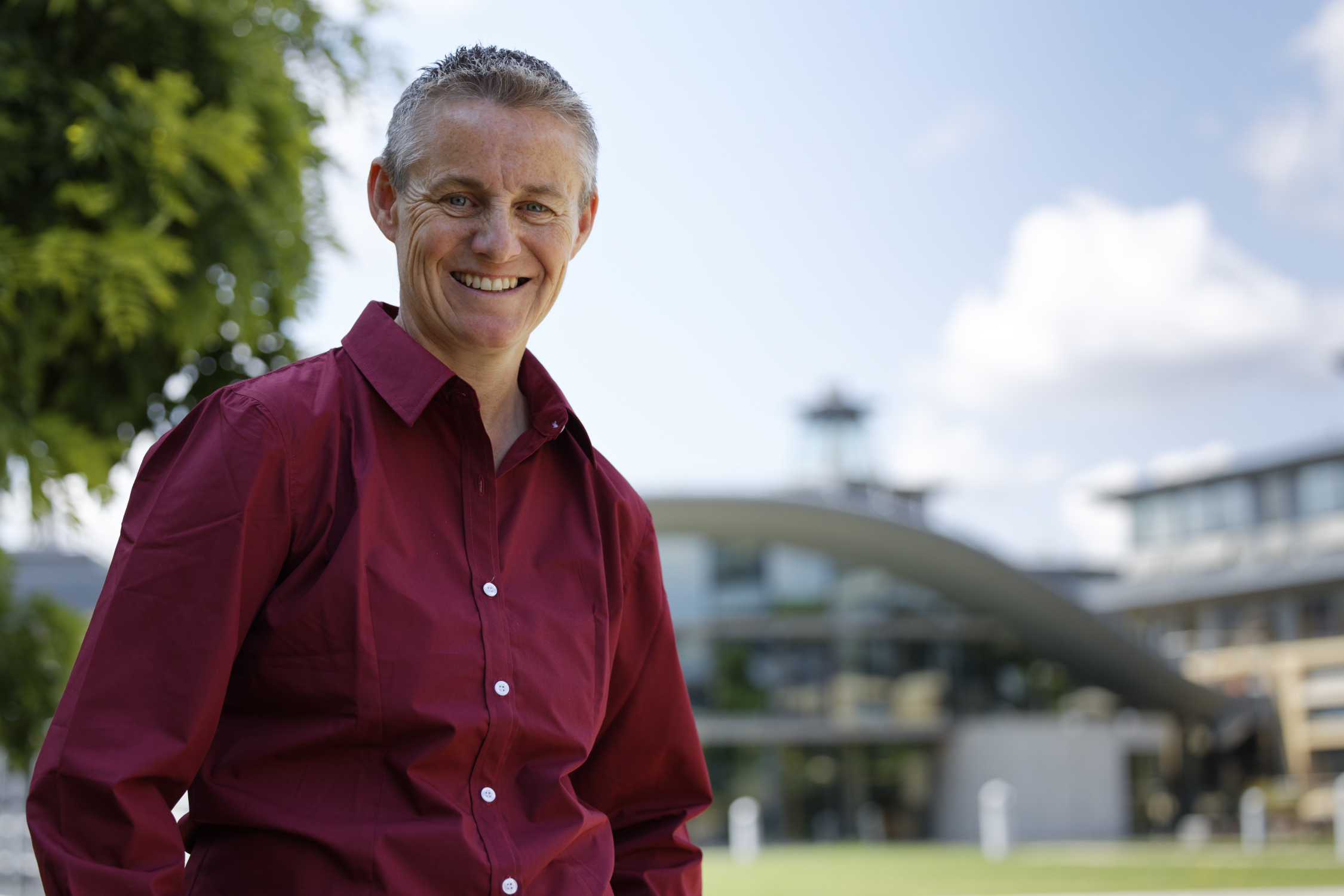Born in El Adem, Libya • Studied Pure Mathematics at University of Lancaster, UK • Highest Degree PhD in Mathematics Education, University of Cambridge, UK • Lives in Lincolnshire, UK • Occupation Director of NRICH, University of Cambridge
My journey is a story of twists and turns. There never was a grand plan, just a love of maths to help steer the way.
I wasn’t the healthiest of children, I missed more school days than I ever managed to attend. It would have been easy to fall behind in my studies, but my headteacher had different ideas. Textbooks appeared in my home and my mum was roped in as my teacher. Perhaps rather frustratingly for her at times, my curiosity was never satisfied; I always wanted to try different ways of doing things. I loved playing games, but also inventing new maths games too! I’d even collect the numbered cardboard doors off my advent calendar to use in them in my latest creation. Numbers had a special place in my life from a very early age.
Having decided that maths was the subject I wanted to study at university, the transition from school to university maths was not as straightforward as I hoped; coming from an all-girls school, it was a shock to find myself on a course dominated by boys. I’d never really associated maths as a ‘boys thing’ until that point. Maths had always been something I just enjoyed doing, but perhaps not everyone enjoyed the same opportunities as I had growing up.
Wednesday afternoons at University were spent on the sports field or at a local teaching college. Although I love sport, my curiosity meant that I eventually tagged along with the teaching group one day – and never turned back! Our tutor challenged everyone to subtract two numbers and record our method – not exactly a tough challenge for soon-to-be maths graduates but I soon discovered that I was the only person in the room to use my chosen approach, and there were two or three other methods in general use around the room. When we were asked to explain our approaches, there was a discussion about ‘milk bottles on doorsteps’ which totally confused me. What did milk bottles have to do with subtraction? Turns out that the ‘milk bottles’ were place value jottings. No wonder so many people complain that they find maths confusing!
[…] through the college session I realised that my ongoing love for investigating different approaches could be usefully applied to teaching. If someone was struggling or could not understand an approach, I could perhaps suggest another way which might work for them and explain it too.
At the time of that college visit, I was focusing on my thesis exploring the different ways mathematicians had proved the Pythagoras Theorem, and through the college session I realised that my ongoing love for investigating different approaches could be usefully applied to teaching. If someone was struggling or could not understand an approach, I could perhaps suggest another way which might work for them and explain it too (without referring to milk bottles). And, as a female mathematician, perhaps I could be a role model too. Suddenly all the pieces fell into place and I applied for teacher training.
[…] I quickly discovered that hardly any primary schools had a maths graduate on their staff and creativity was often being stifled by a lack of confidence and subject knowledge.
As a maths graduate, I opted for a secondary teacher programme which came with a generous grant for signing-up to teach a shortage subject. Tutors required trainees to spend their first fortnight in a primary school, I quickly discovered that hardly any primary schools had a maths graduate on their staff and creativity was often being stifled by a lack of confidence and subject knowledge. Even though it meant losing my ‘welcome’ grant, I switched to a primary course and I’ve never looked back. Primary teachers are incredibly hard-working individuals who need to cover a wide range of subjects and inspire their charges all day, every day. They are amazing people. I soon found myself leading maths in my school and supporting the teaching of maths in other schools nearby by sharing useful resources. At that time, I became an advocate for the types of maths resources designed by NRICH which challenge and engage young learners.
After joining my local authority’s maths team, I helped to set up schools’ maths competitions and lead parental engagement events – opportunities for families to enjoy problem-solving and rethink commonly-held negative views about maths. By volunteering to lead maths masterclasses introducing some of my favourite undergraduate classes such as topology and networks, I hoped I could also act as a role model for younger female students. Ever curious, I began reading more widely about maths education and signed up for my Masters and later my PhD at Cambridge (where I investigated different approaches to calculation, of course!). Today, my love of maths means that I get to work in one of the world’s finest maths departments at the University of Cambridge, helping to support school teachers to inspire future mathematicians and researching ways to increase diversity in my chosen subject as the Director of NRICH – a project which had inspired my classroom teaching. It’s such a privilege working with the NRICH team, and we’ve got exciting plans for the future. Watch this space!



Recent Comments